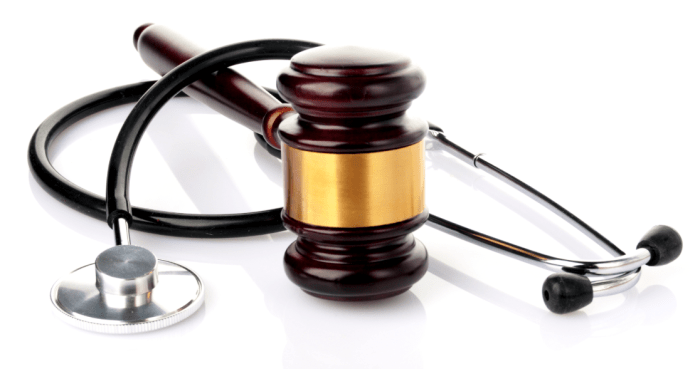Law and ethics for health professions 10th edition – Law and Ethics for Health Professions, 10th Edition, delves into the intricate tapestry of legal and ethical considerations that shape healthcare practice. This comprehensive guide provides healthcare professionals with a solid foundation in the fundamental principles that govern their interactions with patients, colleagues, and the healthcare system.
As healthcare continues to evolve, so too do the ethical and legal challenges faced by practitioners. This text provides a timely and authoritative exploration of these issues, equipping readers with the knowledge and skills necessary to navigate the complex landscape of healthcare.
1. Legal and Ethical Considerations for Healthcare Professionals

Healthcare professionals face complex legal and ethical challenges in their practice. Understanding the fundamental principles of law and ethics is essential for providing ethical and legally compliant care.
Legal Obligations of Healthcare Professionals, Law and ethics for health professions 10th edition
- Provide competent care
- Maintain patient confidentiality
- Obtain informed consent for procedures
- Report suspected abuse or neglect
Ethical Obligations of Healthcare Professionals
- Act in the best interests of the patient
- Respect patient autonomy
- Promote justice and equity
- Avoid conflicts of interest
2. Patient Autonomy and Informed Consent

Patient autonomy is the right of patients to make decisions about their own healthcare. Informed consent is the process by which healthcare professionals obtain the patient’s consent to a procedure or treatment after providing them with full information about the risks and benefits.
Legal and Ethical Requirements for Informed Consent
- Disclosure of material information
- Competence to understand the information
- Voluntariness of the decision
Challenges and Limitations of Informed Consent
- Patient’s inability to understand the information
- Patient’s fear or anxiety
- Time constraints
3. Confidentiality and Privacy in Healthcare
Healthcare professionals have a legal and ethical obligation to maintain the confidentiality of patient information. This includes protecting the privacy of the patient’s medical records, communications, and personal information.
Exceptions to the Confidentiality Rule
- Patient consent
- Legal requirements
- Public health emergencies
Protecting Patient Privacy in the Digital Age
- Encryption and data security measures
- Patient education about privacy risks
- Collaboration with IT professionals
4. End-of-Life Care and Decision-Making: Law And Ethics For Health Professions 10th Edition
End-of-life care involves providing compassionate and respectful care to patients who are facing the end of their lives. Healthcare professionals play a key role in facilitating end-of-life decisions and respecting the patient’s wishes.
Legal and Ethical Principles Governing End-of-Life Care
- Patient autonomy
- Respect for the patient’s values and beliefs
- Palliative care and pain management
Ethical Dilemmas in End-of-Life Care
- Withdrawing or withholding life-sustaining treatment
- Assisted suicide and euthanasia
- Decision-making for incompetent patients
FAQ Insights
What are the key ethical principles that guide healthcare practice?
The fundamental ethical principles in healthcare include autonomy, beneficence, non-maleficence, and justice.
What are the legal obligations of healthcare professionals?
Healthcare professionals have a legal duty to provide competent care, maintain patient confidentiality, and obtain informed consent for procedures.
How does technology impact the legal and ethical landscape of healthcare?
Technology raises ethical concerns about data privacy, patient autonomy, and the allocation of healthcare resources.